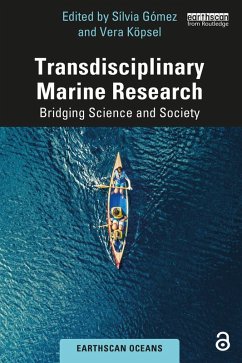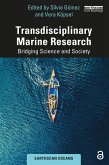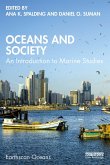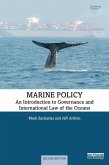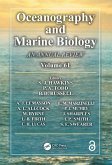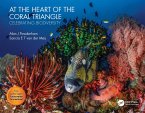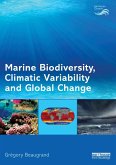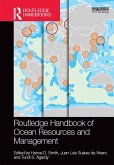Transdisciplinary Marine Research (eBook, ePUB)
Bridging Science and Society
Redaktion: Gómez, Sílvia; Köpsel, Vera
37,95 €
37,95 €
inkl. MwSt.
Sofort per Download lieferbar

19 °P sammeln
37,95 €
Als Download kaufen

37,95 €
inkl. MwSt.
Sofort per Download lieferbar

19 °P sammeln
Jetzt verschenken
Alle Infos zum eBook verschenken
37,95 €
inkl. MwSt.
Sofort per Download lieferbar
Alle Infos zum eBook verschenken

19 °P sammeln
Transdisciplinary Marine Research (eBook, ePUB)
Bridging Science and Society
Redaktion: Gómez, Sílvia; Köpsel, Vera
- Format: ePub
- Merkliste
- Auf die Merkliste
- Bewerten Bewerten
- Teilen
- Produkt teilen
- Produkterinnerung
- Produkterinnerung

Bitte loggen Sie sich zunächst in Ihr Kundenkonto ein oder registrieren Sie sich bei
bücher.de, um das eBook-Abo tolino select nutzen zu können.
Hier können Sie sich einloggen
Hier können Sie sich einloggen
Sie sind bereits eingeloggt. Klicken Sie auf 2. tolino select Abo, um fortzufahren.

Bitte loggen Sie sich zunächst in Ihr Kundenkonto ein oder registrieren Sie sich bei bücher.de, um das eBook-Abo tolino select nutzen zu können.
Drawing on the expertise of marine researchers from both the natural and social sciences, this book examines how we, as both scientists and societies, can return to a sustainable co-existence with the ocean and use the tools of transdisciplinarity to bring together the diverse forms of knowledge needed to achieve this important task.
- Geräte: eReader
- ohne Kopierschutz
- eBook Hilfe
- Größe: 8.31MB
Andere Kunden interessierten sich auch für
![Transdisciplinary Marine Research (eBook, PDF) Transdisciplinary Marine Research (eBook, PDF)]() Transdisciplinary Marine Research (eBook, PDF)37,95 €
Transdisciplinary Marine Research (eBook, PDF)37,95 €![Oceans and Society (eBook, ePUB) Oceans and Society (eBook, ePUB)]() Oceans and Society (eBook, ePUB)35,95 €
Oceans and Society (eBook, ePUB)35,95 €![Marine Policy (eBook, ePUB) Marine Policy (eBook, ePUB)]() Mark ZachariasMarine Policy (eBook, ePUB)51,95 €
Mark ZachariasMarine Policy (eBook, ePUB)51,95 €![Oceanography and Marine Biology (eBook, ePUB) Oceanography and Marine Biology (eBook, ePUB)]() Oceanography and Marine Biology (eBook, ePUB)208,95 €
Oceanography and Marine Biology (eBook, ePUB)208,95 €![At the Heart of the Coral Triangle (eBook, ePUB) At the Heart of the Coral Triangle (eBook, ePUB)]() Alan J PowderhamAt the Heart of the Coral Triangle (eBook, ePUB)48,95 €
Alan J PowderhamAt the Heart of the Coral Triangle (eBook, ePUB)48,95 €![Marine Biodiversity, Climatic Variability and Global Change (eBook, ePUB) Marine Biodiversity, Climatic Variability and Global Change (eBook, ePUB)]() Grégory BeaugrandMarine Biodiversity, Climatic Variability and Global Change (eBook, ePUB)74,95 €
Grégory BeaugrandMarine Biodiversity, Climatic Variability and Global Change (eBook, ePUB)74,95 €![Routledge Handbook of Ocean Resources and Management (eBook, ePUB) Routledge Handbook of Ocean Resources and Management (eBook, ePUB)]() Routledge Handbook of Ocean Resources and Management (eBook, ePUB)64,95 €
Routledge Handbook of Ocean Resources and Management (eBook, ePUB)64,95 €-
-
-
Drawing on the expertise of marine researchers from both the natural and social sciences, this book examines how we, as both scientists and societies, can return to a sustainable co-existence with the ocean and use the tools of transdisciplinarity to bring together the diverse forms of knowledge needed to achieve this important task.
Dieser Download kann aus rechtlichen Gründen nur mit Rechnungsadresse in A, B, BG, CY, CZ, D, DK, EW, E, FIN, F, GR, HR, H, IRL, I, LT, L, LR, M, NL, PL, P, R, S, SLO, SK ausgeliefert werden.
Produktdetails
- Produktdetails
- Verlag: Taylor & Francis eBooks
- Seitenzahl: 320
- Erscheinungstermin: 23. Dezember 2022
- Englisch
- ISBN-13: 9781000836615
- Artikelnr.: 66993866
- Verlag: Taylor & Francis eBooks
- Seitenzahl: 320
- Erscheinungstermin: 23. Dezember 2022
- Englisch
- ISBN-13: 9781000836615
- Artikelnr.: 66993866
- Herstellerkennzeichnung Die Herstellerinformationen sind derzeit nicht verfügbar.
Sílvia Gómez is Associate Professor at the Universitat Autònoma de Barcelona, Spain. She is a social anthropologist whose research focuses on marine science from a transdisciplinary approach. Vera Köpsel is Postdoctoral Researcher in the Institute for Marine Ecosystem and Fisheries Science at the University of Hamburg, Germany. Whilst her background is in human geography, she now focuses her work on marine social science and exchange with non-academic actors.
Part 1: THEORETICAL AND CONCEPTUAL APPROACHES 1. The Multifaceted Picture
of Transdisciplinarity in Marine Research 2. Empty Oceans - Humanizing
Ocean and Seascapes for Building Transdisciplinary Knowledge and Practice
3. Co-Production of Knowledge as Production of Space: How We All Give
Meaning to the Sea 4. Transformation Through Participation: Democratising
the Human-Ocean Relationship
Part 2: METHODS AND PERSPECTIVES 5. Using Bayesian Belief Networks and
Participatory Action Research to Improve Stakeholder Engagement 6.
Assessing the 'Professionalisation' of Marine Citizen Science 7. The Power
and Precarity of Knowledge Co-Production: A Case Study of
Skkijânginnaniattut Nunatsiavut Sivunitsangit (The Sustainable Nunatsiavut
Futures Project). 8. Stakeholders' Normative Notions of Sustainability. A
Survey for the Co-design of a Sustainable Future of the Western Baltic
Fishery System Part 3: INSIGHTS FROM THE CASE STUDIES 9. Small-scale
fishers' knowledge for ocean sustainability: an ethnography in Setúbal,
Portugal 10. Characterization and vulnerabilities of fisheries within a
coastal lagoon in Uruguay: a participatory approach 11. Dialogue of
knowledge for the assessment of the impacts of the oil spill disaster on
the Brazilian coast in 2019 12. The Marine Reserve of fishing interest at
Cape Roche (Conil, Spain): Transdisciplinarity and academic challenges of a
conflictive process Part 4: WAYS FORWARD FOR TRANSDISCIPLINARY OCEAN
SCIENCE AND MANAGEMENT 13. Aiming for the next level of transdisciplinary
marine research Part 5: CLOSING REMARKS 14. Towards a new culture of
reflexive and diverse marine transdisciplinarity
of Transdisciplinarity in Marine Research 2. Empty Oceans - Humanizing
Ocean and Seascapes for Building Transdisciplinary Knowledge and Practice
3. Co-Production of Knowledge as Production of Space: How We All Give
Meaning to the Sea 4. Transformation Through Participation: Democratising
the Human-Ocean Relationship
Part 2: METHODS AND PERSPECTIVES 5. Using Bayesian Belief Networks and
Participatory Action Research to Improve Stakeholder Engagement 6.
Assessing the 'Professionalisation' of Marine Citizen Science 7. The Power
and Precarity of Knowledge Co-Production: A Case Study of
Skkijânginnaniattut Nunatsiavut Sivunitsangit (The Sustainable Nunatsiavut
Futures Project). 8. Stakeholders' Normative Notions of Sustainability. A
Survey for the Co-design of a Sustainable Future of the Western Baltic
Fishery System Part 3: INSIGHTS FROM THE CASE STUDIES 9. Small-scale
fishers' knowledge for ocean sustainability: an ethnography in Setúbal,
Portugal 10. Characterization and vulnerabilities of fisheries within a
coastal lagoon in Uruguay: a participatory approach 11. Dialogue of
knowledge for the assessment of the impacts of the oil spill disaster on
the Brazilian coast in 2019 12. The Marine Reserve of fishing interest at
Cape Roche (Conil, Spain): Transdisciplinarity and academic challenges of a
conflictive process Part 4: WAYS FORWARD FOR TRANSDISCIPLINARY OCEAN
SCIENCE AND MANAGEMENT 13. Aiming for the next level of transdisciplinary
marine research Part 5: CLOSING REMARKS 14. Towards a new culture of
reflexive and diverse marine transdisciplinarity
Part 1: THEORETICAL AND CONCEPTUAL APPROACHES 1. The Multifaceted Picture
of Transdisciplinarity in Marine Research 2. Empty Oceans - Humanizing
Ocean and Seascapes for Building Transdisciplinary Knowledge and Practice
3. Co-Production of Knowledge as Production of Space: How We All Give
Meaning to the Sea 4. Transformation Through Participation: Democratising
the Human-Ocean Relationship
Part 2: METHODS AND PERSPECTIVES 5. Using Bayesian Belief Networks and
Participatory Action Research to Improve Stakeholder Engagement 6.
Assessing the 'Professionalisation' of Marine Citizen Science 7. The Power
and Precarity of Knowledge Co-Production: A Case Study of
Skkijânginnaniattut Nunatsiavut Sivunitsangit (The Sustainable Nunatsiavut
Futures Project). 8. Stakeholders' Normative Notions of Sustainability. A
Survey for the Co-design of a Sustainable Future of the Western Baltic
Fishery System Part 3: INSIGHTS FROM THE CASE STUDIES 9. Small-scale
fishers' knowledge for ocean sustainability: an ethnography in Setúbal,
Portugal 10. Characterization and vulnerabilities of fisheries within a
coastal lagoon in Uruguay: a participatory approach 11. Dialogue of
knowledge for the assessment of the impacts of the oil spill disaster on
the Brazilian coast in 2019 12. The Marine Reserve of fishing interest at
Cape Roche (Conil, Spain): Transdisciplinarity and academic challenges of a
conflictive process Part 4: WAYS FORWARD FOR TRANSDISCIPLINARY OCEAN
SCIENCE AND MANAGEMENT 13. Aiming for the next level of transdisciplinary
marine research Part 5: CLOSING REMARKS 14. Towards a new culture of
reflexive and diverse marine transdisciplinarity
of Transdisciplinarity in Marine Research 2. Empty Oceans - Humanizing
Ocean and Seascapes for Building Transdisciplinary Knowledge and Practice
3. Co-Production of Knowledge as Production of Space: How We All Give
Meaning to the Sea 4. Transformation Through Participation: Democratising
the Human-Ocean Relationship
Part 2: METHODS AND PERSPECTIVES 5. Using Bayesian Belief Networks and
Participatory Action Research to Improve Stakeholder Engagement 6.
Assessing the 'Professionalisation' of Marine Citizen Science 7. The Power
and Precarity of Knowledge Co-Production: A Case Study of
Skkijânginnaniattut Nunatsiavut Sivunitsangit (The Sustainable Nunatsiavut
Futures Project). 8. Stakeholders' Normative Notions of Sustainability. A
Survey for the Co-design of a Sustainable Future of the Western Baltic
Fishery System Part 3: INSIGHTS FROM THE CASE STUDIES 9. Small-scale
fishers' knowledge for ocean sustainability: an ethnography in Setúbal,
Portugal 10. Characterization and vulnerabilities of fisheries within a
coastal lagoon in Uruguay: a participatory approach 11. Dialogue of
knowledge for the assessment of the impacts of the oil spill disaster on
the Brazilian coast in 2019 12. The Marine Reserve of fishing interest at
Cape Roche (Conil, Spain): Transdisciplinarity and academic challenges of a
conflictive process Part 4: WAYS FORWARD FOR TRANSDISCIPLINARY OCEAN
SCIENCE AND MANAGEMENT 13. Aiming for the next level of transdisciplinary
marine research Part 5: CLOSING REMARKS 14. Towards a new culture of
reflexive and diverse marine transdisciplinarity
